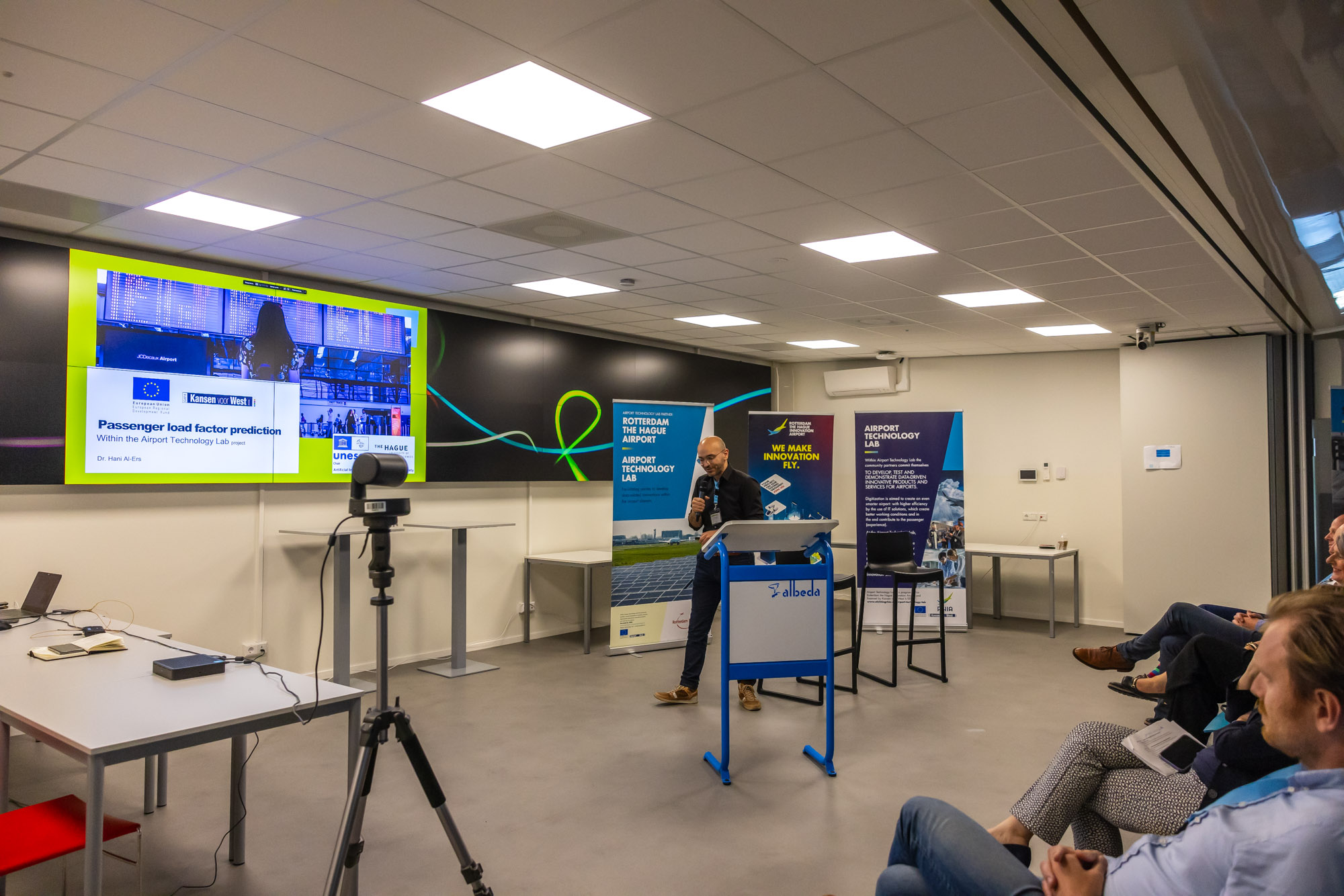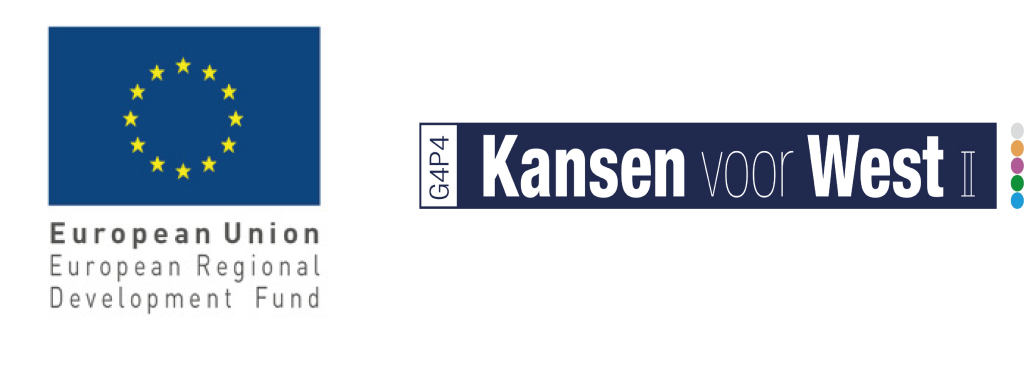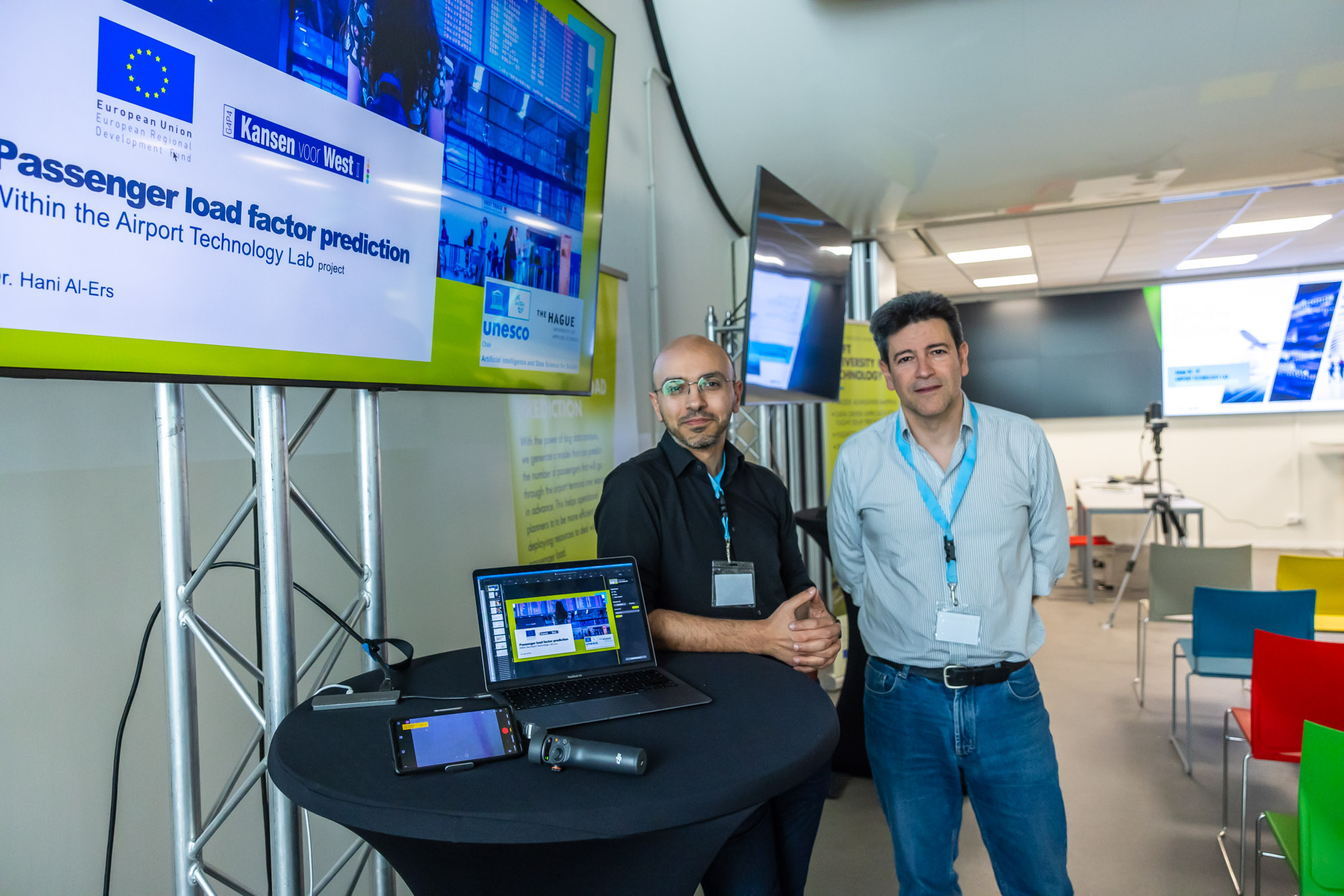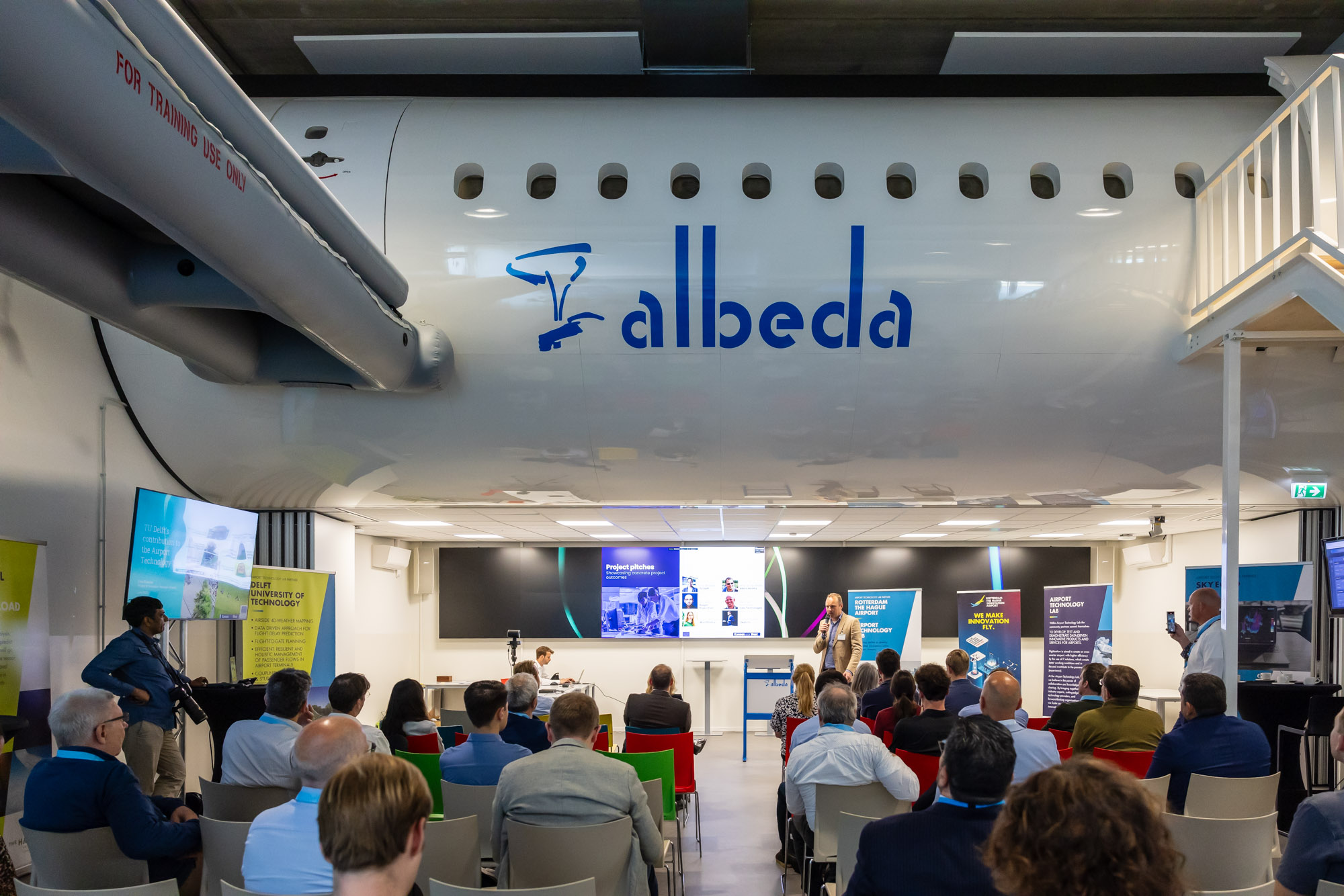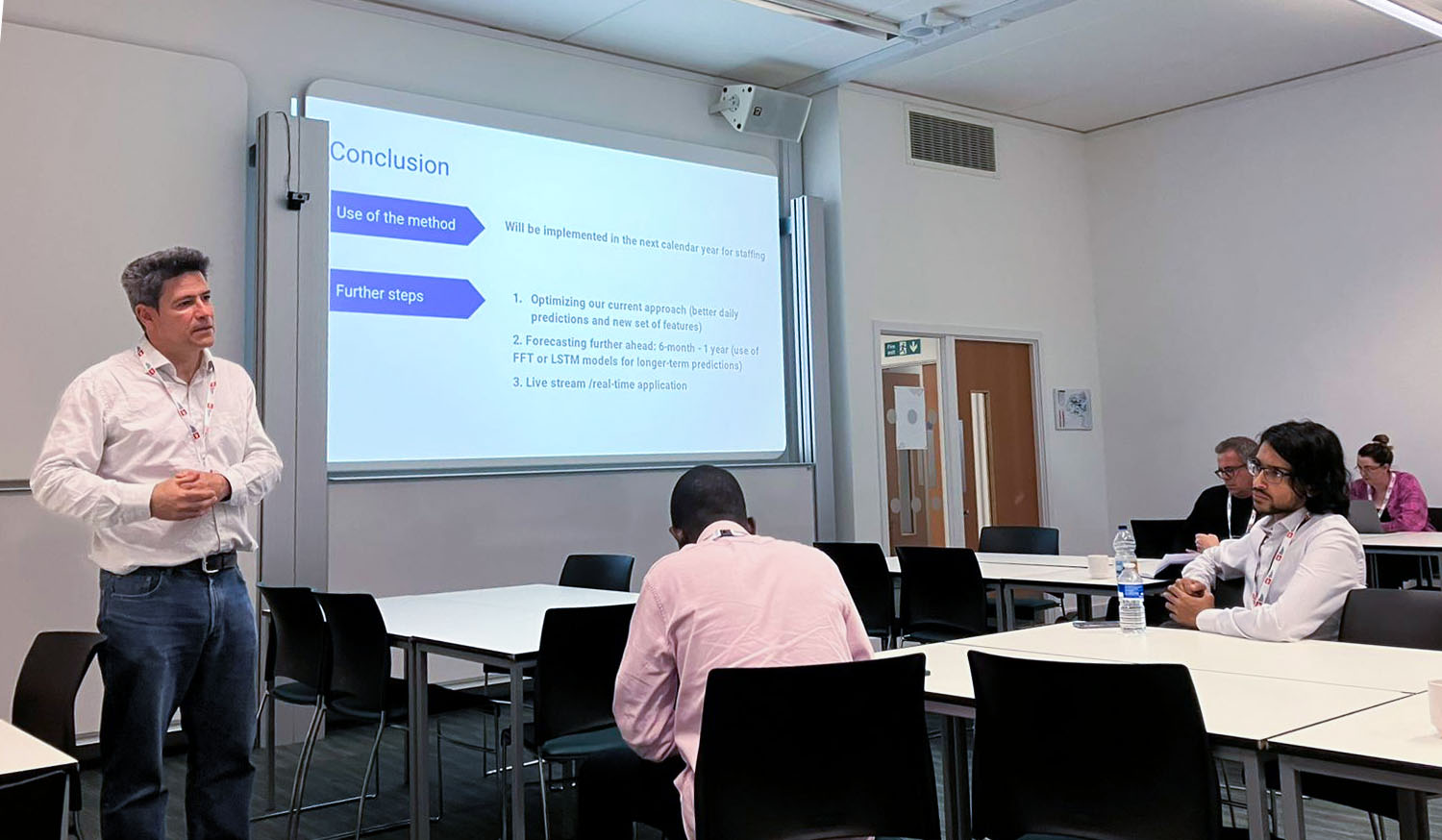Project Overview
In today’s ever-evolving aviation industry, where capacity planning and operational efficiency are paramount, the ability to predict passenger flight load with precision is crucial. At The Hague University’s Data Science research group, we’ve delved deep into this challenge, reviewing historical methodologies and crafting an innovative algorithm using XGBoost, a state-of-the-art machine learning technique.
Objective and Background
The core aim of this research was to develop a reliable prediction algorithm that capitalizes on extensive data from Rotterdam The Hague airport, spanning seven years from 2014 to 2021. Earlier research in this domain examined various prediction methodologies, each offering variable performance results. Our study builds on this foundation, introducing a fresh perspective with the XGBoost approach.
Methodology
Dataset: The project leverages a comprehensive dataset from Rotterdam The Hague airport. It incorporates distinct features like:
- Future flight bookings
- Passenger numbers from prior days
- Cyclical monthly patterns
These cyclical monthly patterns are uniquely represented using Repeating Radial Functions.
Algorithm Functionality:
Initial Forecasting: The algorithm initially predicts daily passenger volumes, considering the above mentioned features.As can be seen in Figure 1, by overlapping the available data of each year, it is possible to see clear trends in the data driven by seasonality.
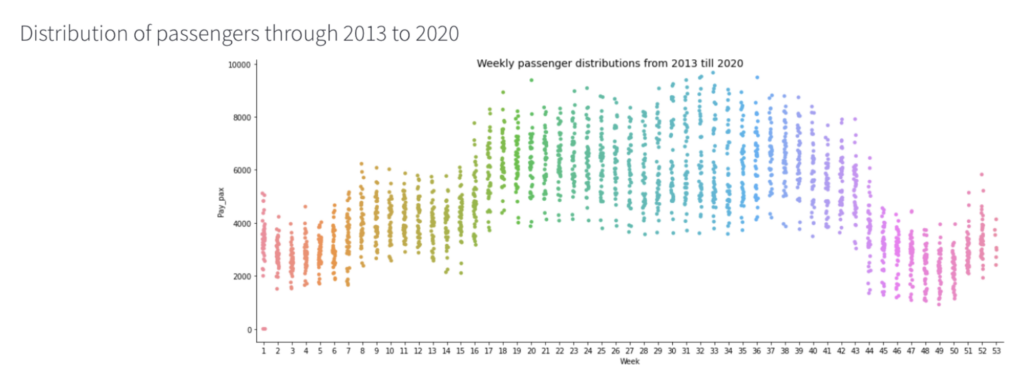
Figure 1: Seasonal patterns in passenger flow from 2014 to 2018
Refinement: After forecasting daily volumes, the algorithm hones this data, adapting the daily prediction to an empirical distribution of passenger flow throughout the day. This results in a granular, hourly forecasting format, enabling stakeholders to get a more detailed view of expected traffic. Figure 2 shows an example of the hourly prediction of passenger flow one month in advance.
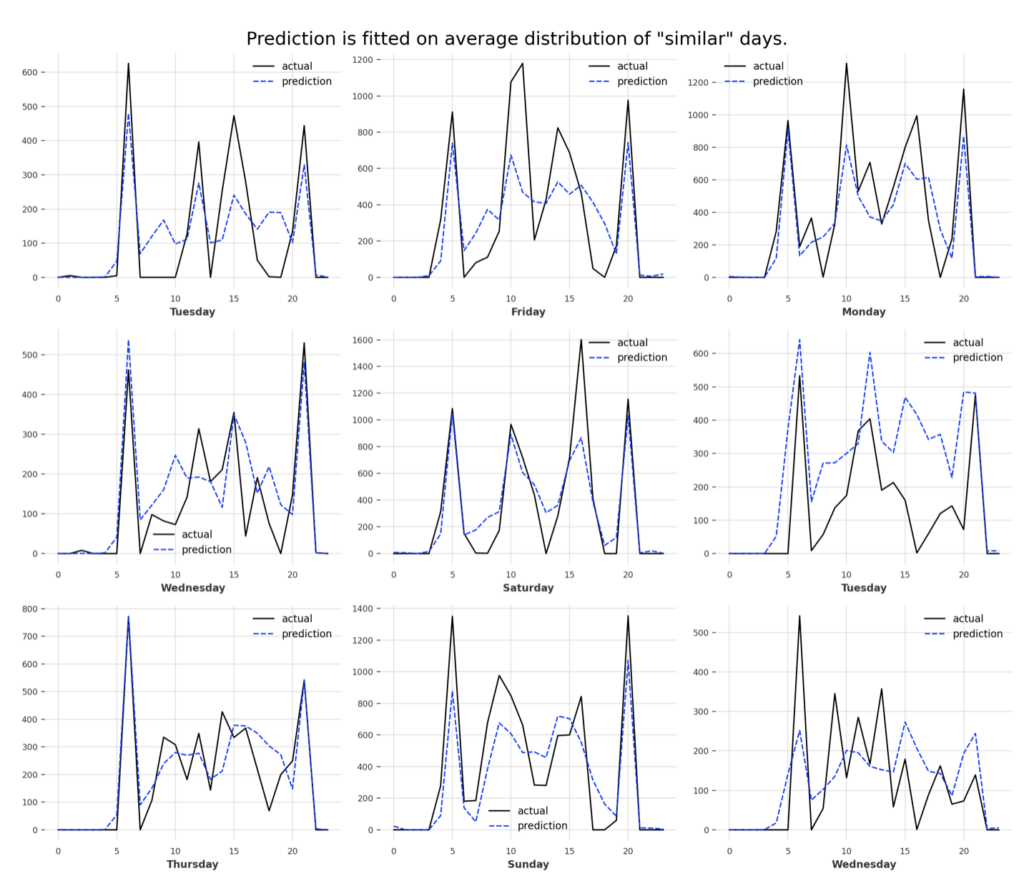
Figure 2: One month in advance, hourly passenger predictions for upcoming days, based on historical data
Results and Impact
Our rigorous cross-validation of the prediction algorithm over the full dataset returned a Root Mean Square Error (RMSE) of just 300 passengers per day. This result underscores the algorithm’s remarkable precision and dependability. Such innovations mark a transformative phase for the aviation industry, driving data-centric methods to optimize operational efficiency and strategic capacity management. The implications of our study extend beyond mere predictions, emphasizing a sustainable vision for the future of air travel.
Future Endeavors
While the results have been promising, the project, as a part of the ATL (Airport Technology Lab) project funded by Kansen Poor West, remains committed to refining the prediction model even further. With the evolving demands of the aviation industry and the constant influx of data, our research team is poised to enhance and adapt our methodologies, ensuring that they remain relevant, precise, and actionable.
Conclusion
The fusion of intricate data analysis and machine learning in our research project charts a path for the future of aviation. As we harness the power of data to shape a more efficient and sustainable air travel ecosystem, we invite stakeholders, scholars, and enthusiasts to delve into our findings, critique, collaborate, and co-create the future.
Showcase Event Highlights: Airport Technology Lab Showcase Event at Albeda Rotterdam The Hague Airport College
On the 8th and 9th of June, The Hague University’s Data Science research group had the distinct honor of participating in the Airport Technology Lab Showcase event held at Albeda Rotterdam The Hague Airport College. This event was a confluence of innovation, collaboration, and future-oriented thinking, with a focus on presenting the results of the ATL projects and brainstorming the future of digital interactive airports.
Day 1: Showcasing the Future of Aviation:
On the first day, our esteemed colleague, Hani Al-Ers from Haagse Hogeschool, took the stage among other industry stalwarts to present our groundbreaking project on passenger load prediction for the Rotterdam The Hague airport. Utilizing XGBoost, our innovative machine learning technique, Hani shared the meticulous research and impressive results that our team achieved, highlighting its potential to revolutionize capacity planning and operational efficiency in the aviation sector.
The day was packed with other enlightening presentations, each unveiling the pioneering work and results of their respective ATL projects. With a keen emphasis on the outcomes and values achieved in the past years, the presentations provided a holistic view of how the aviation sector is poised for a digital transformation.
